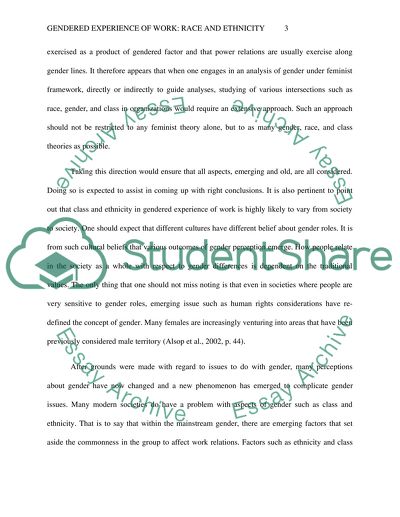Cite this document
(“Gendered experience of work: race and ethnicity Essay”, n.d.)
Retrieved from https://studentshare.org/gender-sexual-studies/1402730-discuss-how-class-and-ethnicity-are-part-of-the
Retrieved from https://studentshare.org/gender-sexual-studies/1402730-discuss-how-class-and-ethnicity-are-part-of-the
(Gendered Experience of Work: Race and Ethnicity Essay)
https://studentshare.org/gender-sexual-studies/1402730-discuss-how-class-and-ethnicity-are-part-of-the.
https://studentshare.org/gender-sexual-studies/1402730-discuss-how-class-and-ethnicity-are-part-of-the.
“Gendered Experience of Work: Race and Ethnicity Essay”, n.d. https://studentshare.org/gender-sexual-studies/1402730-discuss-how-class-and-ethnicity-are-part-of-the.


